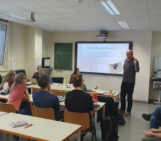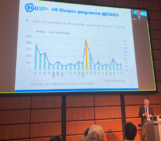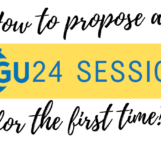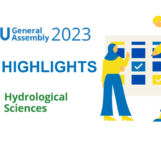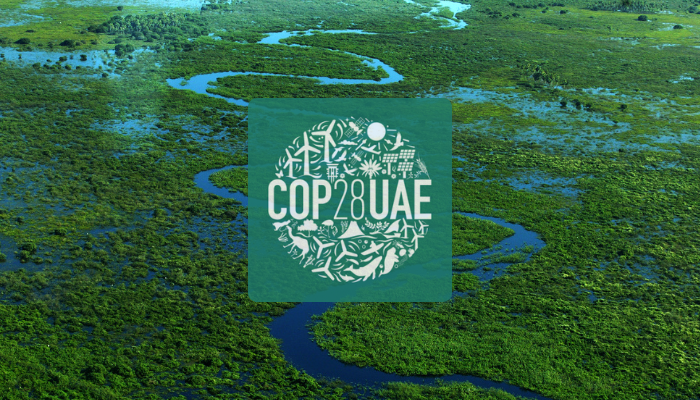
In the arena of environmental conservation, the power of youth engagement is gaining increasing recognition as a force propelling positive change. This recognition is particularly evident in the endeavours aimed towards safeguarding our wetlands – crucial ecosystems brimming with biodiversity and providing indispensable services to both humanity and the natural world. At the 28th Conference of the Parties (COP28), held recently in Dubai, the spotlight shone brightly on the significance of empowering young voices in wetland conservation through a high-profile side event.
Wetlands and COP
Wetlands, which span a diverse spectrum including marshes, swamps, mangroves, and peatlands, play a vital role in preserving ecological equilibrium. They are also increasingly recognized as crucial in the fight against climate change. Despite covering only a small percentage of the Earth’s surface, these ecosystems play an outsized role in carbon storage and provide essential services such as flood regulation, erosion control, and habitat provision for countless species. However, they are also faced with a plethora of threats including habitat destruction, pollution, and extreme events.
The outcomes of COP27, held in Egypt in 2022, particularly the confirmation of funds for climate adaptation and the acknowledgement of the importance of wetlands in climate resilience, set the stage for more ambitious actions at COP28. The Global Stocktake provided a platform for showcasing the critical role of wetlands in mitigating climate change. Through initiatives like the REWET team, stakeholders emphasized the urgency of conserving and restoring wetland ecosystems. These efforts were bolstered by commitments from governments, businesses, and civil society to integrate wetland conservation into national climate plans and adaptation strategies.
One of the highlights of COP28 was the increased attention given to peatlands. Experts underscored their significance in carbon sequestration and climate regulation, with peatland restoration highlighted as transformative in reducing greenhouse gas emissions and enhancing climate resilience.

Peatland photo by Susann Warnecke
Throughout the conference, deliberations and initiatives centred on forging a global community united in the cause of wetland conservation, with events such as World Wetland Day serving as rallying points for youth involvement.
The Side Event: Wetlands Restoration under Climate Change: Youth Engagement
From hosting webinars to engaging in capacity-building young conservationists showcased their unwavering dedication and fervour for preserving wetland ecosystems. A particular highlight was the side event “Wetlands Restoration under Climate Change: Youth Engagement.”
Here, early career scientists from a great variety of institutions explored the crucial nexus of wetlands restoration, climate change resilience, and youth engagement. Institutions represented included the Global Alliance of Universities on Climate (GAUC), Imperial College London, the Aboriginal and Torres Strait Islander International Engagement Organisation, the Hydrological Sciences Division of the European Geosciences Union (EGU), and the Youth Working Group of the Ramsar Convention on Wetlands.

The Ramsar Youth Working Group, outlined in Annex 1 of the 14th Meeting of the Conference of the Contracting Parties to the Ramsar Convention on Wetlands, has made significant strides in promoting youth involvement in wetland governance. Their primary aim is to enhance the participation and representation of individuals aged 18 to 35 in wetland-related matters, fostering a more inclusive and diverse landscape for wetland management and conservation efforts. The Australian regional group has been organizing webinars focused on wetland conservation and management, serving as platforms for knowledge exchange and capacity-building among young enthusiasts.
The Youth Working Group aims to build a global community dedicated to wetland conservation, exemplified by initiatives like World Wetland Day. Additionally, they offer capacity-building activities aimed at assisting Contracting Parties through policy guidance and recommendations. Moving forward, the next crucial phase of their work involves the development of a comprehensive work plan. Interested in joining this dynamic group? Reach out to Ariana Magini (ariana.magini@dcceew.gov.au) for further details on membership and involvement opportunities!
A Way Forward
Moving forward, sustaining the momentum generated at COP28 and translating commitments into concrete actions on the ground will be imperative. Urban wetlands, in particular, offer unique opportunities for enhancing resilience and liveability in cities, mitigating the impacts of climate change, improving water quality, and creating green spaces for recreation and biodiversity.
As we look ahead, empowering youth voices will be crucial in driving transformative change and ensuring a sustainable future for wetland ecosystems and the planet as a whole.
Edited by Christina Orieschnig

